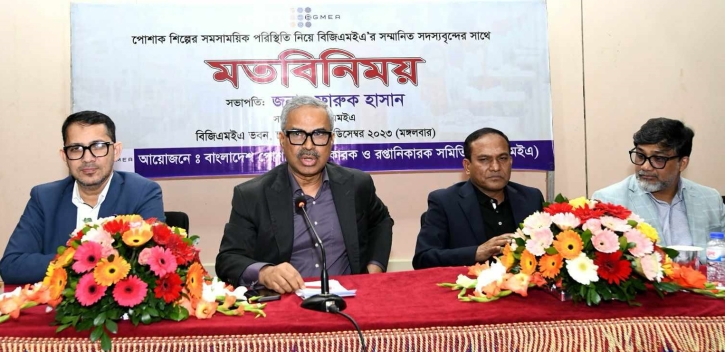
Photo: Daily Messenger
Bangladesh Garment Manufacturers and Exporters Association (BGMEA), the apex trade body of the garment manufacturers gave the clarification regarding buyer’s payment cancelation, delay amid the political cold relationship with EU, USA the major export destination of ready to wear cloths.
In a letter, BGMEA President Faruque Hassan said, the global trade landscape is changing fast; human rights and environmental due are getting increased priorities, while geo-political issues are also influencing trade. Since Bangladesh’s economy and its growth is heavily reliant on trade, any development around trade policy concerns us. Therefore, I feel the urge to make this statement to clarify few issues creating confusion.
A copy of a letter of credit (LC) from a foreign buyer to one of the Members of BGMEA has come to our attention. The LC contains the following text -
“We will not process transactions involving any country, region or party sanctioned by the UN, US, EU, UK. We are not liable for any delay, non-performance or disclosure of information for Sanctions Reasons”.
There is a concern and confusion caused by the interpretation of this clause that a sanction might have been imposed against Bangladesh, which is not correct.
This is to be noted that the LC came from a particular buyer, and this is not a statutory order or notice by any country. So, this should not be misinterpreted as a measure of trade enforcement or economic sanction on Bangladesh.
This is to further clarify that individual buyers or entities may have their own internal policies and protocols, but a LC copy or a private commercial instrument is not an official declaration. Moreover, BGMEA did not receive any information from our diplomatic mission or from any official source to support any sanction or trade measure.
Workers’ rights and wellbeing is a supreme consideration for us. The Government of Bangladesh has pledged to implement a labor roadmap by 2025 and making all the efforts to implement it, including the amendment of labor act in 2013, 2018 and 2023. The labor rules were promulgated in 2015 and amended in 2022. The Bangladesh EPZ Labour Act was passed in 2019 and EPZ Labor Rules promulgated in 2022.
The previous requirement of 30% workers participation to apply for union registration of a factory (popularly known as ‘threshold’) was reduced to 20%, which is further reduced in the recent amendment to BLA making it 15% for factories employing more than 3000 workers. For group of companies the threshold was maintained at 30%, which has also been reduced to 20%. Contribution to the Central Fund for the workers wellbeing is legally provisioned; in the financial year 2022-23 around 14 million dollars is contributed to the fund by this industry.
Messenger/Sanjay/Alamin








